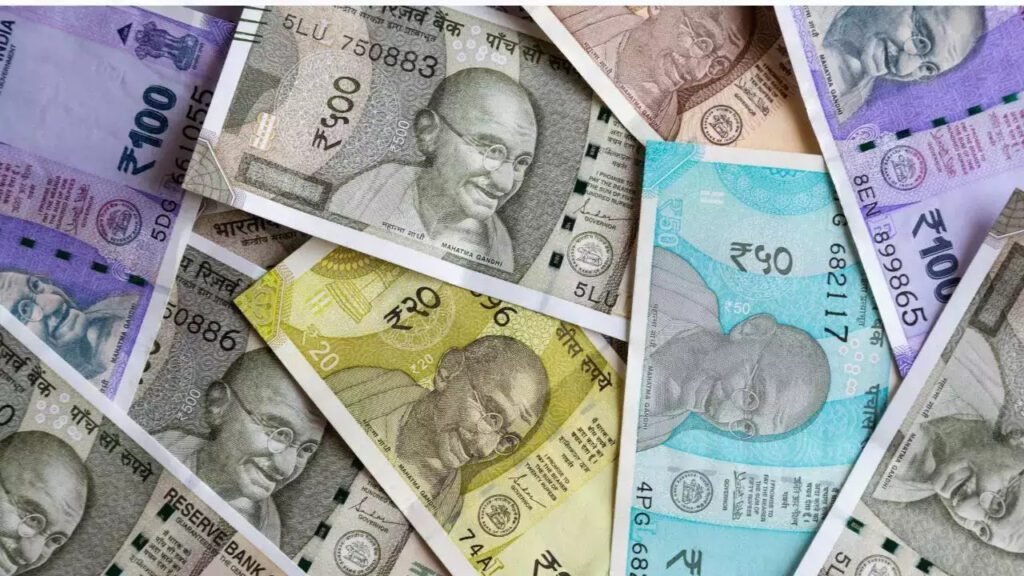The Indian Rupee (INR) has recently experienced a steady rise against the US Dollar (USD), providing some relief to Indian expats, especially those working in countries like the UAE. However, while the currency’s appreciation offers potential benefits for Indian workers, particularly those sending remittances back home, it also comes with its own set of dynamics that expats need to be cautious about. The weaker US Dollar is a global trend, and the rupee’s gain, though optimistic, should not lead to overconfidence among expatriates. In this article, we take a closer look at the reasons behind this recent currency shift, its implications, and why Indian expats in the UAE may need to manage their expectations carefully.
The Rise of the Indian Rupee
The Indian Rupee has seen a gradual appreciation against the US Dollar, which has been weakening over the past few months. At the start of 2025, the rupee strengthened, with several positive indicators aligning for the currency. Several factors have contributed to this recent rise:
- Weakening US Dollar: The US Dollar, which has traditionally been the strongest currency in the global market, has shown signs of weakening. This has been primarily driven by the Federal Reserve’s decision to ease interest rates to promote economic growth, coupled with a shift in investor confidence away from the US Dollar toward other assets. As a result, currencies like the Indian Rupee, as well as other emerging market currencies, have gained ground against the USD.
- Improved Economic Indicators in India: India’s economy has demonstrated resilience over the last few months, with strong economic growth figures and an increase in exports. The government’s efforts to attract foreign investments and the country’s growing technological and industrial sectors have provided a robust economic backdrop for the rupee. The Indian economy, despite challenges like global inflation and domestic inflationary pressures, remains one of the fastest-growing in the world, which strengthens investor confidence in the currency.
- Stronger Foreign Exchange Reserves: India has also managed to bolster its foreign exchange reserves, with an improved current account balance. These reserves provide a cushion against external shocks and support the value of the rupee, further aiding its rise against the Dollar.
- Oil Price Fluctuations: India, as a major importer of oil, has been somewhat insulated from global price surges thanks to favorable conditions in global oil markets. This, in turn, has reduced pressure on the rupee and supported its upward movement.
The Impact of Rupee Strength on Indian Expats in the UAE
Indian expats in the UAE, a significant portion of whom work in sectors such as construction, retail, and services, often send remittances back to their families in India. The exchange rate plays a critical role in how much value these remittances retain once they are converted into Indian Rupees. In recent months, as the Indian Rupee strengthens, expats have found themselves receiving more for the same amount of money.

However, this gain is not necessarily a cause for immediate celebration. The appreciation of the rupee should be viewed in the broader context of global financial trends and the economic environment in both the UAE and India.
- Rupee Gains May Be Short-Term: While the rupee’s upward trend against the US Dollar is beneficial in the short term, it is important for expats to remain cautious. Exchange rates fluctuate due to numerous factors, including interest rate changes, geopolitical developments, and global market sentiments. In the past, such trends have often been short-lived. Indian expats in the UAE should, therefore, avoid making long-term financial decisions based solely on current exchange rates.
- Dollar Weakness is Global: The weakening of the US Dollar is not a sign of a thriving Indian Rupee in isolation but rather part of a broader global trend. The weakening dollar is primarily due to external factors like changes in US monetary policy and international trade shifts. While this may provide temporary advantages, it does not necessarily indicate a stable or long-term rise for the rupee. Expats may experience a reversal of the trend if global economic conditions change again.
- Inflationary Pressures in India: While the rupee’s appreciation may offer short-term benefits for Indian expats sending money back home, it is essential to consider the economic situation in India. Despite the favorable currency exchange, inflationary pressures in India may erode the real value of the remittances when converted into goods and services. Prices for essentials like food, transportation, and housing continue to rise, which could offset any perceived gains from the stronger rupee.
- Economic Factors in the UAE: The UAE economy, while diversified and strong, is not immune to global economic shifts. The country’s reliance on oil exports and international trade means that fluctuations in global markets can affect the cost of living and business activities in the UAE. For instance, if oil prices rise or the US Dollar strengthens again, it could reverse the current favorable exchange rates for Indian expats. Therefore, it’s important for expats to consider how the changing economic environment in the UAE could impact their financial outlook.
- Currency Risk Management: As exchange rates are unpredictable, Indian expats in the UAE may want to consider implementing currency risk management strategies, such as hedging. For instance, locking in favorable exchange rates through forward contracts or using multi-currency accounts could help mitigate risks associated with sudden fluctuations in the currency market. By taking these measures, expats can protect themselves from the volatility of the foreign exchange markets, ensuring that their financial goals are not jeopardized.
Why Expats Should ‘Cool Their Heels’
While it’s understandable that Indian expats in the UAE might be optimistic about the rupee’s recent strength, there are several reasons why they should remain grounded and not overly exuberant about the shift:

- The Global Nature of Currency Markets: As currencies are interconnected globally, changes in one currency’s value often reflect broader shifts in the world economy. Indian expats should avoid making hasty financial decisions based on short-term trends and remember that currencies fluctuate, sometimes unpredictably.
- Economic Uncertainty: The global economic outlook remains uncertain, especially in light of geopolitical issues and the ongoing effects of the pandemic. Any unforeseen global disruptions can lead to the reversal of currency trends, including a sharp depreciation of the rupee against the US Dollar.
- Long-Term Financial Planning: Financial planning should be based on long-term goals rather than reacting to short-term currency movements. Expats should focus on building financial security by investing wisely, creating emergency savings, and diversifying their portfolios. Relying on currency fluctuations to drive decisions can be risky and counterproductive in the long run.
- Repatriation of Funds: While the current rupee strength may be advantageous for remittances, it’s also essential for expats to manage their funds carefully when repatriating money to India. Banking fees, conversion charges, and fluctuating rates could diminish any potential benefits, and focusing too much on short-term gains might result in overlooking the overall financial picture.
Conclusion
Indian expats in the UAE are certainly benefiting from the current strength of the Indian Rupee against the weakening US Dollar. However, as with all market fluctuations, it’s important not to get carried away by short-term trends. While the rupee’s rise is a welcome development, it is essential to remain cautious, as currency markets are volatile, and long-term stability is often elusive. Expats should focus on creating a sound financial strategy that accounts for both short-term gains and long-term security, ensuring that they’re well-prepared regardless of how the currency market moves in the future.
Do follow Uae stories for more Updates












